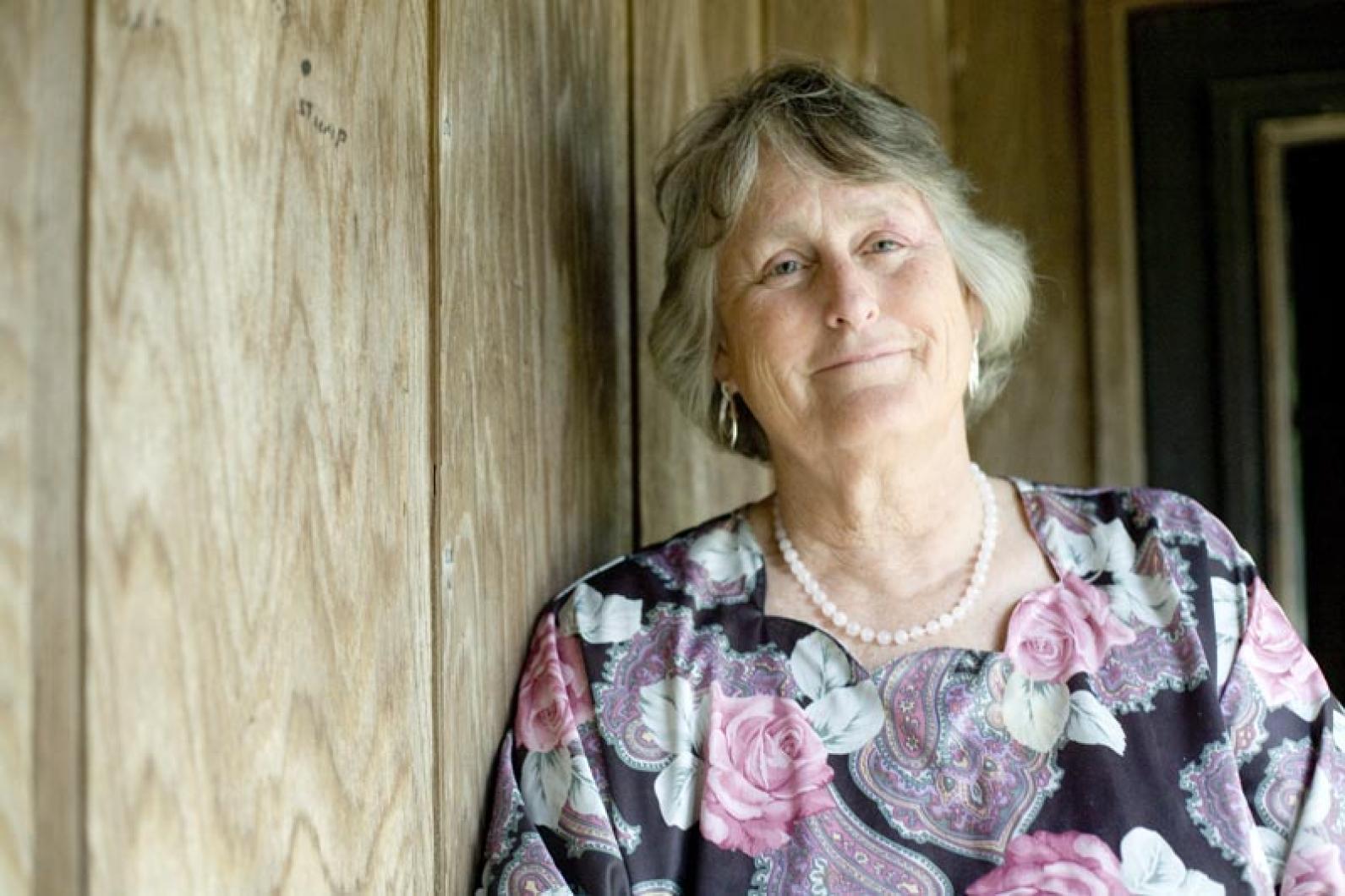Widow’s walks attest to them, historians tend to overlook them, and now at last, they have been given a chance to speak for themselves. Or rather, to sing for themselves.
They are the wives of Vineyard whalers, whose husbands left for voyages of up to four or five years, and who were left to tend farms, manage general stores and mind their husband’s assets in a society unaccustomed to accepting women’s role in the public sphere.
Their new venue, Island of Women, is an original musical by Liz Villard, which opened June 11 at the Yard in Chilmark and will continue its run this week from Wednesday through Sunday at the Katharine Cornell Theatre in Vineyard Haven.
Ms. Villard, whose many hats include captain of the Chappaquiddick ferry and light designer at the Yard in addition to directing her new musical, is a busy woman lately. Her crowded days correspond to an equally populous list of interests and talents — local history, Elizabethan drama and sailing, to name some — that she has been able to merge in this project, the first musical she has written.
The research phase for Island of Women took place several years ago, when she was curating an exhibit at the Vincent house in Edgartown that focused on the lives of Island women.
Discovering a marked dearth in the historiography of this period and topic, she turned to primary sources and, as she puts it, “got really obsessed with the 1850 census.”
Because in 1850 women’s work went unrecorded or else was listed under their husband’s names, Ms. Villard had to read between lines and interpret gaps in order to form a picture of what was actually going on at the time.
Gaps like the fact that for 1,000 students listed in the census, there were only three teachers — the heads of the three schools — listed. There were more than three teachers of course, Ms. Villard explains: they were women.
Or what about the names of men on the books of a general store, listed as having done outwork (home textile labor) during years when they were away at sea?
Again, the answer was women.
The women who people Ms. Villard’s script are drawn from historical figures but fictionalized. “Never put real people in plays on the Island — their descendents will come out and yell at you,” she quips.
The characters are faced with the challenge of supporting themselves while their husbands are away, while at the same time dealing with the societal attitude that what they were doing is somehow inappropriate.
The play is set in a period — 1850-1852 — that in Ms. Villard’s view was a low ebb in the fortunes of women’s labor, just after the transition from an agriculturally-based economy in which women’s work in the home was the natural counterpart to the men’s field labor, to a money economy in which men went to work for wages while women continued to work at home but did not receive wages.
When they did eventually enter into wage-paying labor, in the mills at Lowell and Fall River, as one character in Island of Women does, the public reaction was to be appalled, considering it inappropriate for women to have and spend their own money.
This is the socio-economic context of the historical moment, on top of which Ms. Villard layers the emotional realities of her characters. The lives of whaling wives were plagued by the odd, double-pronged woe of “loneliness, and not really having any idea whom you were married to,” Ms. Villard said. Whalers spent years at a time at sea and came home for an interval of months — too little time to develop a true relationship.
It is the positive side of the historical moment, however, that forms the real heart of the play, Ms. Villard says. This is, after all, also the period in which the nascent organizational efforts, centered at first around women’s church groups and later flowering into the abolitionist and suffrage movements, were occurring. The deep friendships that emerged between women and their stirring collective consciousness, are an integral part of the drama.
With her research done, Ms. Villard faced the challenge of how to “get a lot of historical information out there and not bore the audience.” For this, she turned to music. “When it gets very emotional, it sings,” she said. Something that would “take you 20 minutes in words” can be accomplished easily in a single song.
The score was written by Phillip Dietterich a composer, conductor, organist, pianist and Shaker music enthusiast, who for 33 years served as minister of music at First United Methodist Church, Westfield, N.J.
The cast includes the phenomenal and classically trained soprano Abigail Southard, who thrilled audiences last winter in a performance of St. Nicholas plays, along with slightly over a dozen Island actors. “It is very much an ensemble piece,” Ms. Villard said.
Having the characters fleshed out by real actresses, she said, changed the way she saw the characters and in some instances led to changes in the script. “To me, as a director, you get the cast relaxed enough that they do the work for you,” Ms. Villard said.
The themes explored in the play ought to feel relevant to many Vineyarders in the modern day. Ms. Villard said she told Lois Mayhew, whose husband Greg Mayhew runs one of the last draggers and goes out on long fishing trips, that “she had to come see the play, because she’s in it.”
Ms. Villard herself has some experience in saying goodbye to sailors — her daughter is an officer with the National Oceanic and Atmospheric Adminstration (NOAA).
“I told my cast, ‘don’t blow the embraces,’ ” she said. “I know what it’s like to say goodbye.”
Island of Women plays at the Katharine Cornell Theatre on June 25, 26 and 27 at 7:30 p.m. Show time on Sunday, June 28 is 3 p.m.




Comments
Comment policy »